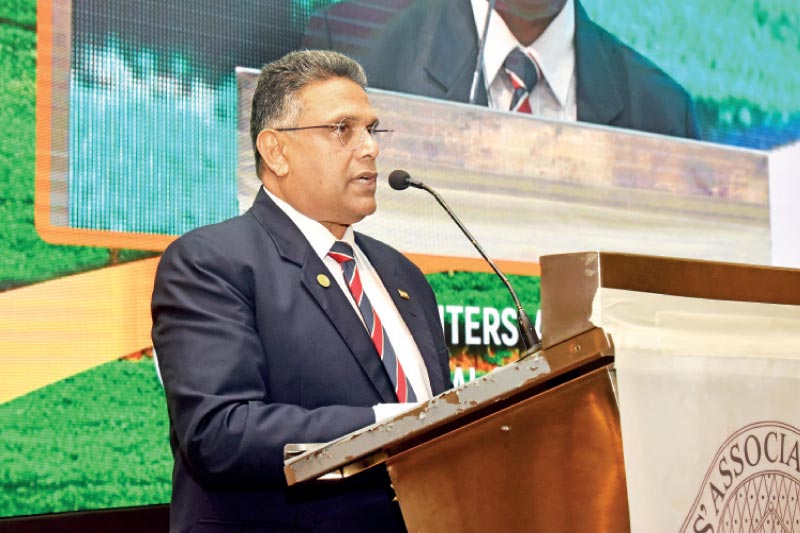Wednesday Feb 18, 2026
Wednesday Feb 18, 2026
Monday, 25 September 2023 02:33 - - {{hitsCtrl.values.hits}}

Planters’ Association of Ceylon Chairman Senaka Alawattegama
In a rallying call for collective action, Planters’ Association of Ceylon Chairman Senaka Alawattegama urged to engage in open dialogue and collaborate purposefully to navigate the challenges and secure a sustainable future for the entire sector.
Addressing at the 169th Annual General Meeting he underscores the importance of basing policy on facts and data, advocating for a clear separation of truth from conjecture. The belief in the sector's untapped potential remains resolute, contingent on a fundamental overhaul of policy, legal, and operational frameworks.
“It is now imperative that all stakeholders engage in genuine dialogue and collaborate purposefully to embark on the challenging journey of reform and realignment necessary to secure a sustainable future for the entire plantation industry. We remain resolute in our belief that with the right strategic interventions, Sri Lanka can still realise the full commercial potential in the plantation sector. But this can only be achieved through a fundamental re-evaluation and modernisation of the foundational policy, legal and operational frameworks that underpin our industry,” he said.
Noting that Private sector enterprises require the freedom to make management decisions that sustainably advance their commercial interests, he said they depend on stability and consistent conditions over the long term to invest, recalibrate and thrive.
“For Regional Plantation Companies (RPCs), stability is paramount. The call for clear, rational industry goals grounded in reality and private enterprise principles is amplified. Urgency is voiced in the re-evaluation of Government decisions, such as the recent imposition of VAT, which threatens to impact prices significantly. The clamour for suitable lease extensions reverberates, acknowledging the pivotal role RPCs play in investment, diversification, and employee welfare. However, he claimed that further investments hinge on assurances of long-term returns,” he added.
In the tea sector, he said wage reform emerges as the linchpin concern. The success of Tea Smallholders under a revenue-sharing model serves as a beacon, spotlighting the need for RPCs to transition away from outdated attendance-based systems. Resistance to wage reform, ongoing for over a decade, now sees a glimmer of progress. The revenue-sharing model is touted as the vanguard against labour outmigration, presenting greater value to workers.
Alawattegama said many RPCs are spearheading transformative initiatives, from mechanisation to speciality tea cultivation. These endeavours promise to elevate industry standards, enhancing supply chain efficiency and visibility.
He noted that Pure Ceylon Tea remains a beacon of premium quality amid global competition. Its unique attributes resonate with consumers, underscoring the challenge of revitalising its appeal to new markets.
However, he said the rubber sector grapples with volatility, exacerbated by the Circular Spot Leaf Disease outbreak. Urgent calls for research and support for reforms reverberate as the industry seeks to recover from a substantial production decline.
The clarion call for diversification resounds as a strategic response to systemic risks. Flexibility in land-use policies is championed, allowing for transitions to high-value crops. PCs pioneering in coffee, spices, avocados, and berries chart a promising course.
“Diversification emerges not just as a revenue booster, but as a risk mitigation strategy. Government support in cultivating financially viable crops and flexible land-use policies is viewed as the linchpin to a more resilient and economically vibrant plantation sector,” he pointed out.